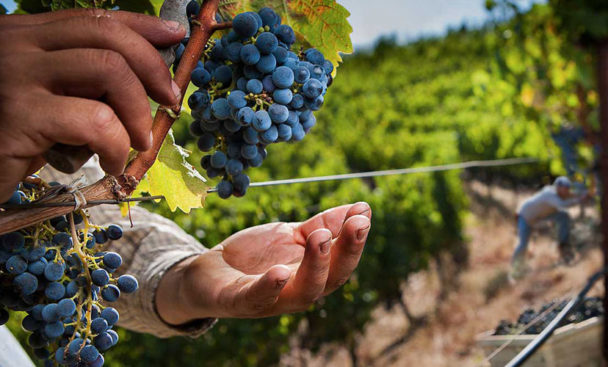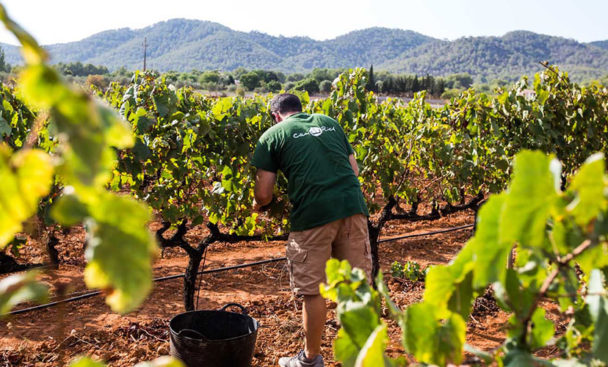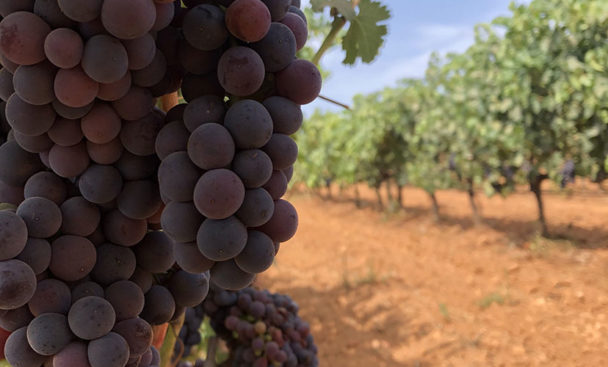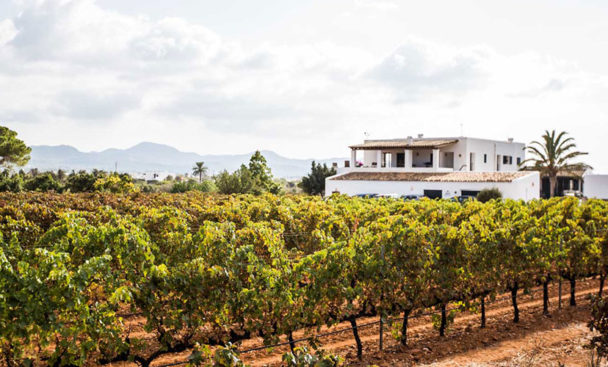The wine harvest in Ibiza is held earlier than in the rest of the country. Just as cherries flower in February, instead of April or May like the rest of Spain, the grapes reach their peak sugar content in August and as they reach ripeness so begins an authentic multi-generational festival. Families meet up with friends to harvest this precious fruit and make their own wines, eat together, and enjoy the countryside in once of the island’s centuries old traditions.
In addition to the wine made from their own harvests, there are also many ought-after wines with denomination of origin belonging to four wineries, Can Maymó and Sa Cova, in Sant Mateu d’Albarca, Ibizkus, in Santa Eulària des Riu, and Can Rich, in Sant Antoni de Portmany. This last is the only wine cellar on the island producing organic wines of all kinds: reds, whites, rosés and sparkling wines. All produce their wine under the quality seal of “Vino de la Tierra Illes Balears” (wine from the Balearic Islands) a geographic indication used to designate traditional wines from the island of Ibiza.
Most of the wine producers organise guided tours of their wineries and vineyards and they offer wine tastings to those gourmets among visitors who wish to discover more about the flavours and tastes of Ibiza.
The wines of Ibiza are made with the red grape varieties, monastrell, tempranillo, merlot, cabernet sauvignon and syrah, and the whites are made with macabeo, chardonnay, muscat of Alexandria, muscat à petits grains, parellada and malvasía grapes. These wines are exported to Germany, Italy, Switzerland, the Netherlands, Austria and even as far as Japan, where they are particularly fond of the sparkling wines.
According to the producers’ forecasts, this year the harvest will be down by 30 percent yet experts predict an exceptional result. Due to the climate, fewer grapes will be harvested over this period but the quality will be better. The Ibizan spring was particularly cold, which will impart a special taste to the grapes. Due to the fact that the fruit is small this year, there will be less grape juice, but more skins, which will enrich the wines with tannins and special flavours.
As a result, the combination of dry climate, salt and sun, produces robust wines imbued with the essence of the Mediterranean, and you can taste and savour them in numerous establishments.
Wine production in the Pitiusa islands dates back to the 7th century BCE, coinciding with the arrival of the Phoenicians, and since then the tradition has been maintained in many homes where they still make wines for their own consumption.
Although the wine harvest, known as the vendimia, is held between the months of August and September, the main festival on the island is in December in Sant Mateu d’Albarca, where all the producers, both large and small, present their wines in a popular competition with the winner chosen by the attendees, earning the title of the island’s top wine producer. An unmissable opportunity to discover another, lesser known facet of Ibiza.



